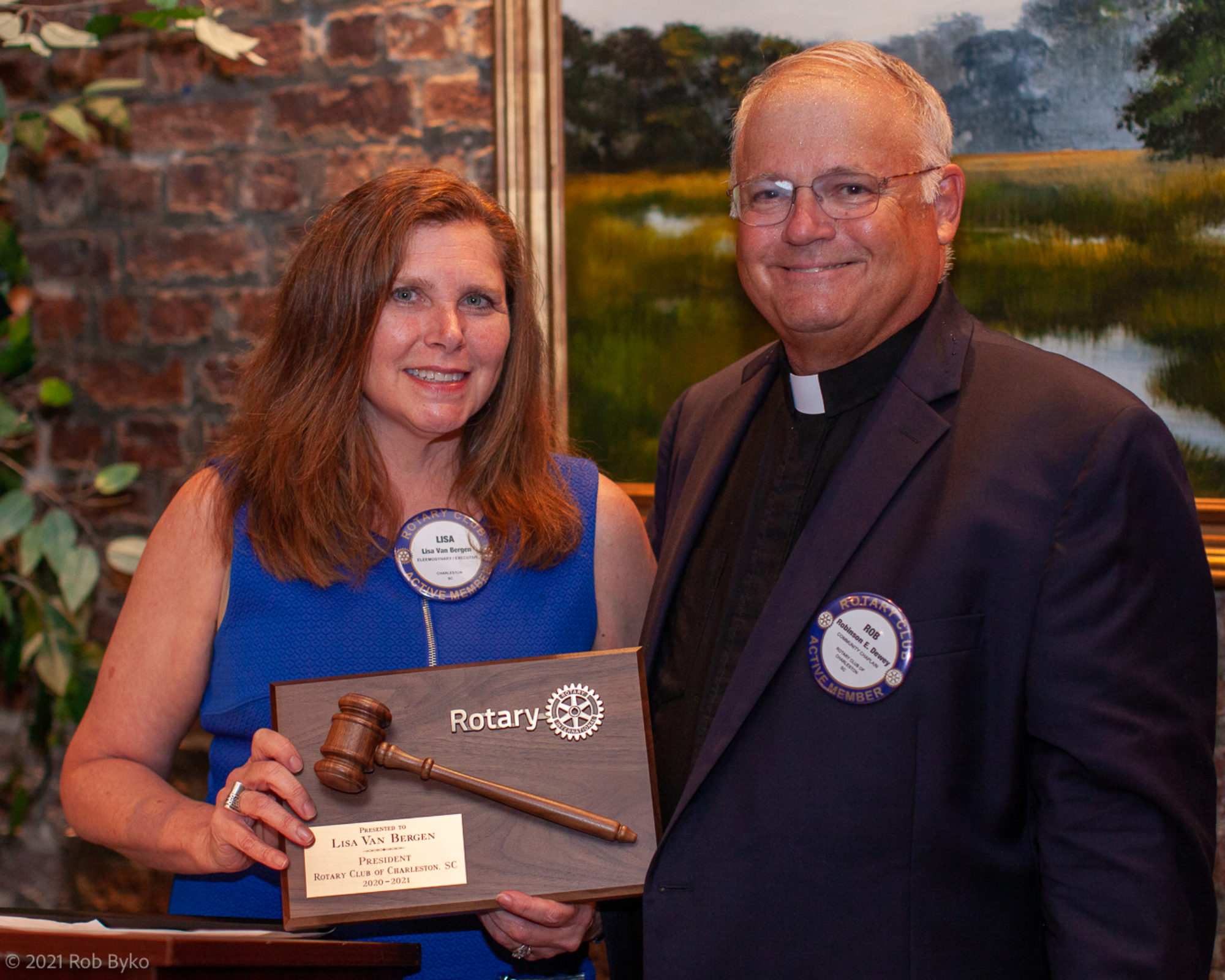July 26, 2016 – Our keynote speaker this week was Jordan Marsh with South Carolina Fix Our Roads (“SCFOR”). SCFOR is the only non-partisan, non-profit (501(c)(4) group that exclusively advocates for additional, sustainable and recurring funding for South Carolina’s long-term needs. SCFOR does not have a Political Action Committee and believes a safe and efficient highway system in essential to continuing South Carolina’ economic growth, thriving tourism industry, and most of all, the safety and well-being of South Carolinians. Members of SCFOR include independent businesses, national organizations, local Chambers of Commerce, state-wide trade associations (safety, agriculture, trucking and tourism).
Currently, the poor condition of the primary roads in South Carolina, which carries over one-half (1/2) of the state’s traffic, has grown from 31% in 2008 to 54% in 2014. Interestingly, the cost to repair a road in poor condition ($180,000/mile) is ten times the cost to repair a road in moderate condition ($18,000/mile). Congestion, which is another major issue for South Carolinians, is due to the 43% increase in traffic since 1990. It is estimated by SCDOT that traffic congestion in South Carolina has cost the economy approximately $2.6 billion. South Carolina is tied as the deadliest state in the country with 964 fatal accidents in 2015.
The problem is the lack of funding. It is estimated that SCDOT faces a $1.2 billion budget shortfall annually over the next 30 years. Specifically, the SCDOT funding sources cannot maintain pace with inflation. The last funding increase was in 1987 when the motor fuel user fee was increased to 16.8₵. Assuming SCDOT funding does not increase, its function will be to simply manage the declining highway system. Unfortunately, Georgia and North Carolina out spend South Carolina when it comes to road repairs, which is primarily because of each state’s motor fuel user fee. North Carolina has a user fee of 37.8₵ and spends $35,000 per mile; whereas Georgia has a user fee of 28.5₵ and spends $150,000 per mile. South Carolina has a user fee of 16.8₵ and spends $15,000 per mile.
In January 2015, Governor Haley introduced her plan, which proposed to increase the gas tax by 10₵ per gallon and reduce the state income tax by 2%. Her plan also included reform of the SCDOT and State Infrastructure Bank. In April 2015, the House passed bill to increase the excise tax to the equivalent of 10₵, to reduce the state income tax by $48 per taxpayer, and to reform the SCDOT and State Infrastructure Bank. The bill was passed by a vote of 87-20. The Senate received a special order vote in June, but the bill was filibustered until the end of the session and will not be further addressed until the General Assembly returns.
A new bill was introduced that redirects $215 million from DMV fees and fines, leverages the Vehicle Sales Tax through bonds and utilizes the existing SCDOT funds. This bill is estimated to result in $4.2 billion being available for road projects, including the elimination of structurally deficient bridges on interstates and national highway system routes, the widening and improving of existing interstates and pavement resurfacing. It is believed that this bill has momentum because it addresses SCDOT reform, members agree it is a good first step and there appear to be bipartisan support for fixing South Carolina roads.
SCFOR continues to campaign for a long-term, sustainable funding source, to engage with supporters to advance a long-term plan and to grow the coalition to bring South Carolina roads into the 21st Century. The SCFOR coalition involvement includes press conferences, letters to the General Assembly and having members contact legislators through social media, email, phone and text. The SCFOR Grassroots Campaign includes educating civic groups on the road debate, as these individual are the backbone of its advocacy efforts.
Jordan encouraged us to stand up to the anti-tax (out-of-state) groups that are fighting against SCFOR and to contact our legislators to help secure additional, recurring and sustainable infrastructure funding legislation.
— Abe Gutting, Keyway Committee


